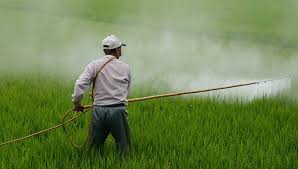The Pesticides Management Bill 2020 (PMB) is noble in intent but its many lacunae could end up hurting the interests of farmers and Indian agriculture.
By marginalizing the efficiencies of the domestic crop protection industry that has provided affordable and efficacious products to farmers – most of whom have small landholdings – PMB 2020 may further jeopardize farmers’ livelihoods and create concerns around food security.
The Bill needs wider consultations within Parliament and ideally, it should be placed before a Select Committee of Parliamentarians for critical review and necessary changes addressing the needs of farmers, Indian agriculture and the pesticides industry. This is imperative if India seeks to be Atmanirbhar as a credible manufacturer and supplier of pesticides to the world while promoting food security objectives and generating employment opportunities for its people.
Elaborating the importance of pesticides in protecting crops, Dr Ajit Kumar, Chairman (Technical Committee) – Crop Care Federation of India said, “Time and again, pesticides have helped farmers safeguard their crops against a plethora of pest attacks. Some pest attacks occur on a mass scale – such as the recent locust swarm invasion across various parts of the country. Had farmers not used pesticides in time, their crops could have been devastated, jeopardising their income. PMB 2020 needs to consider these issues and review certain provisions that will impact the availability and accessibility of pesticides."
"The Registration Committee has powers to subjectively review the registration of a pesticide and then suspend, cancel or even ban its usage without any scientific evaluation. Such scenarios can disrupt Indian farmers’ functioning and productivity. Accordingly, an independent regulator is imperative to oversee the Registration Committee’s decisions in safeguarding the interests of farmers, the crop protection industry and India’s food security goals,” added Kumar.
Dr Krishan Bir Singh Chaudhary, President, Bharat Krishak Samaj said, “Dr. Ashok Dalwai Committee had recommended for reduction in import and reduced dependence on imported formulations, but the present PMB will increase the import of formulations and will damage the export of agro chemicals. It’s our sincere request to the government to expedite the registration process and allow Indian manufacturers to develop and export pesticides to generate employment opportunities in India and earn foreign exchange, especially at a time when Indian pesticides have a large global demand. Only then we can march towards the dream of being Atmanirbhar. The Prescription clause should be also removed and the bill should be sent to the Select Committee.”
In terms of pricing difference, Emamectin Benzoate used in cotton farming was initially imported and sold for Rs. 10,000 per kg by an MNC. Subsequently three years later the same product was manufactured by domestic companies and sold at Rs. 3,500 per kg. So if the imported formulations are to be encouraged then how will a farmer survive,” added Chaudhary.
For instance, Section 23 provides for re-registration of pesticides already registered under the erstwhile 1968 Act. PMB mandates that such registrations will only be valid for two years after the Bill comes into force. During this timeframe, the manufacturer needs to apply and obtain fresh registration from the Registration Committee (RC), only then can they manufacture and sell the product beyond two years.
This provision will introduce instability in the pesticides industry and also impact Indian agriculture badly as several products required by farmers may not be available because the RC may have failed in or denied the granting of registrations in time. The Bill should provide that each registration granted under the 1968 Act will be deemed to be approved under PMB without the limited two year timeframe.
The Pesticides Management Bill 2020 (PMB) was introduced in the Rajya Sabha on 23 March 2020 to replace The Insecticides Act 1968, which currently governs the registration, manufacturing, export, sale and use of pesticides in India. The Bill is slated to come up for discussions and subsequent consideration in the impending Monsoon Session of Parliament beginning 14 September 2020.
